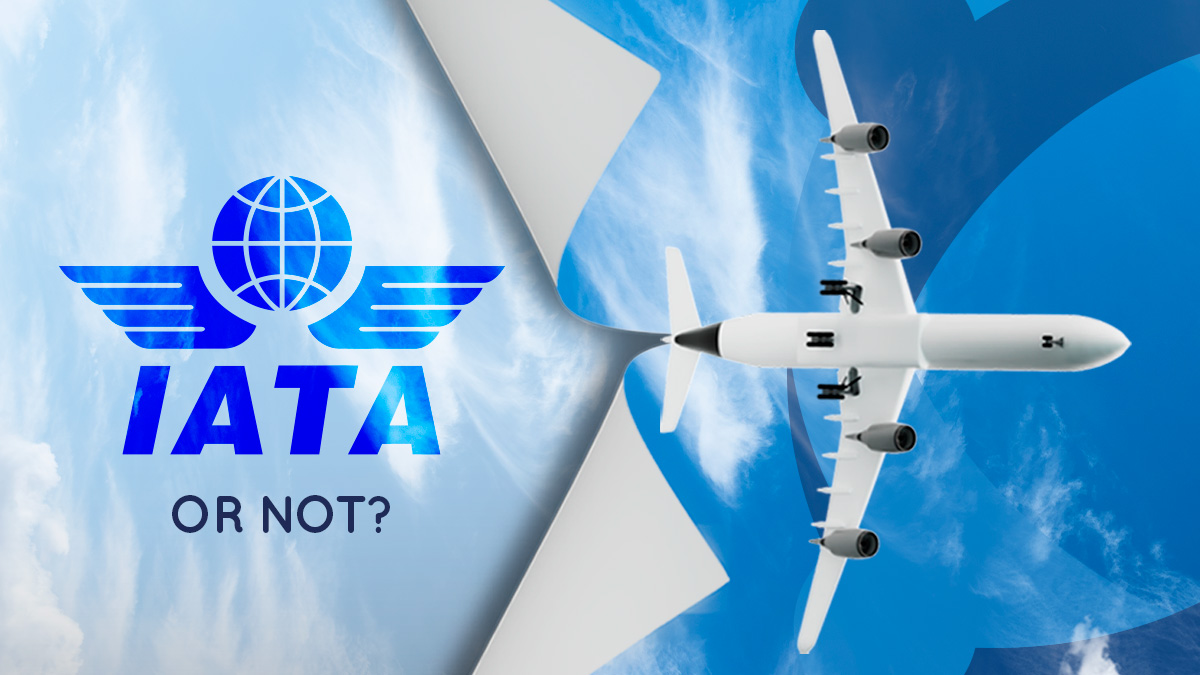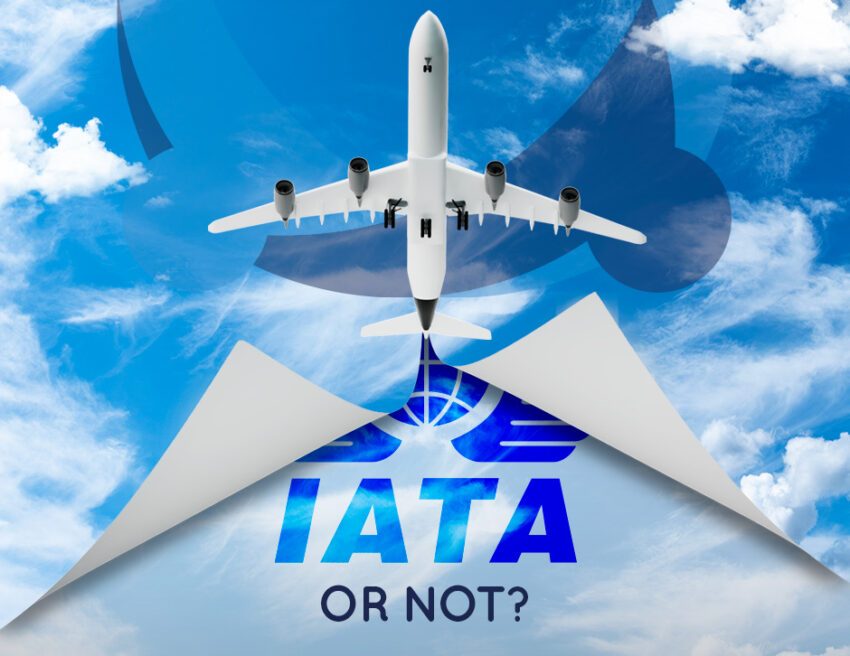Whether or not to become an International Air Transport Association (IATA) agent is one decision that air freight companies often contemplate. IATA, a global trade association for the airline industry, comes with numerous benefits to its accredited agents, however, the decision to pursue this accreditation comes with its own set of considerations. In today’s blog we will explore the advantages and disadvantages of becoming an IATA agent, helping air freight forwarders decide whether this accreditation aligns with their business goals.

Should air freight companies consider becoming IATA agents?
To begin with, let us take at the numerous benefits associated with an IATA accreditation.
What is IATA?
The International Air Transport Association (IATA) represents approximately 290 airlines, accounting for 82% of total air traffic. It provides a vital platform for cooperation in air transport, ensuring safe, secure, and efficient airline operations. For air freight companies, IATA accreditation signifies compliance with international standards and best practices.
Becoming an IATA agent means that a freight company has met IATA’s stringent requirements, demonstrating financial stability, operational efficiency, and adherence to air freight industry regulations. Accredited agents gain access to IATA’s network, tools, and resources, which can significantly enhance their operations and credibility in the industry.
The advantages of IATA accreditation
Enhanced Credibility and Trust
One of the most significant benefits of becoming an IATA agent is the enhanced credibility it brings. Clients and partners are more likely to trust and do business with a company that has been vetted and accredited by a globally recognized organization. This credibility can lead to increased business opportunities and partnerships.
Access to Global Airline Network
IATA agents gain access to a comprehensive global network of airlines. This access enables freight forwarders to offer a broader range of services and routes to their clients. It also allows for more competitive pricing and better service options.
Streamlined Operations
IATA provides its agents with various tools and resources designed to streamline operations. These include standardized documentation, training programs, and access to industry-specific software.
Financial Protections and Benefits
Accredited agents can benefit from IATA’s financial security measures, such as the Cargo Account Settlement Systems (CASS). CASS simplifies the billing and settlement process between airlines and freight forwarders, ensuring timely and accurate payments.
Training and Development
IATA offers extensive training and development programs for its agents. These programs cover various aspects of the air freight industry, from operational best practices to regulatory compliance. By participating in these training programs, companies can ensure their staff are well-informed and skilled, leading to improved service quality and operational efficiency.
The disadvantages and considerations
High costs and stringent requirements and compliance
One of the primary drawbacks of IATA accreditation is the cost. The application process involves significant fees, and maintaining accreditation requires ongoing expenses. These costs can be a burden for small and medium-sized enterprises with limited budgets. Companies must weigh these costs against the potential benefits to determine if the investment is worthwhile.
IATA accreditation involves meeting stringent requirements and maintaining strict compliance with industry standards. This process can be time-consuming and requires a considerable amount of documentation and operational adjustments. Companies must be prepared to invest time and resources into achieving and maintaining accreditation.
This is why small air freight companies find the option of becoming a member of a freight forwarding network more viable. As a member of one of the best logistics networks like Conqueror Freight Network, air freight companies get to partner with trusted and vetted agents across 153 cities and get incoming project opportunities throughout the year. Conqueror Freight Network (CQR) unites trustworthy freight forwarders in key cities worldwide, fostering reciprocal and secure cooperation to help them grow their businesses, lower costs and risks, and compete more effectively with the largest international logistics companies.
Limited flexibility and competitive pressure
Accredited agents are required to adhere to IATA’s rules and regulations, which can limit operational flexibility. For example, IATA’s standard practices might not align with a company’s existing procedures or business model. This lack of flexibility can be a disadvantage for companies that value their unique operational approaches.
While IATA accreditation can provide a competitive edge, it also places companies in direct competition with other accredited agents. This competitive environment can be challenging, particularly for smaller companies that may struggle to differentiate themselves from larger, more established players in the market.
Making the decision
The decision to pursue IATA accreditation should be aligned with a company’s long-term business goals. Companies should consider whether the benefits of accreditation, such as increased credibility and access to a global network, align with their strategic objectives. Moreover, conducting a thorough cost-benefit analysis is crucial. Air freight companies should evaluate the financial implications of accreditation, including application fees, ongoing costs, and potential return on investment. This analysis will help determine if the benefits outweigh the costs.
Companies should also consider their position in the industry and the demands of their clients. If clients frequently require services that benefit from IATA accreditation, such as access to a global airline network and streamlined operations, pursuing accreditation may be advantageous. Finally, air freight forwarders must assess their operational readiness. Achieving and maintaining IATA accreditation requires compliance with strict standards and continuous operational excellence. Companies should ensure they have the necessary resources and capabilities to meet these requirements.
Conclusion
Becoming an IATA agent offers numerous benefits, including enhanced credibility, access to a global network, streamlined operations, and financial protections. However, it also involves significant costs, stringent compliance requirements, and potential limitations in operational flexibility. Air freight companies must carefully evaluate these factors to determine if IATA accreditation aligns with their business goals and operational capabilities. By making an informed decision, companies can position themselves for success in the competitive air freight industry.


